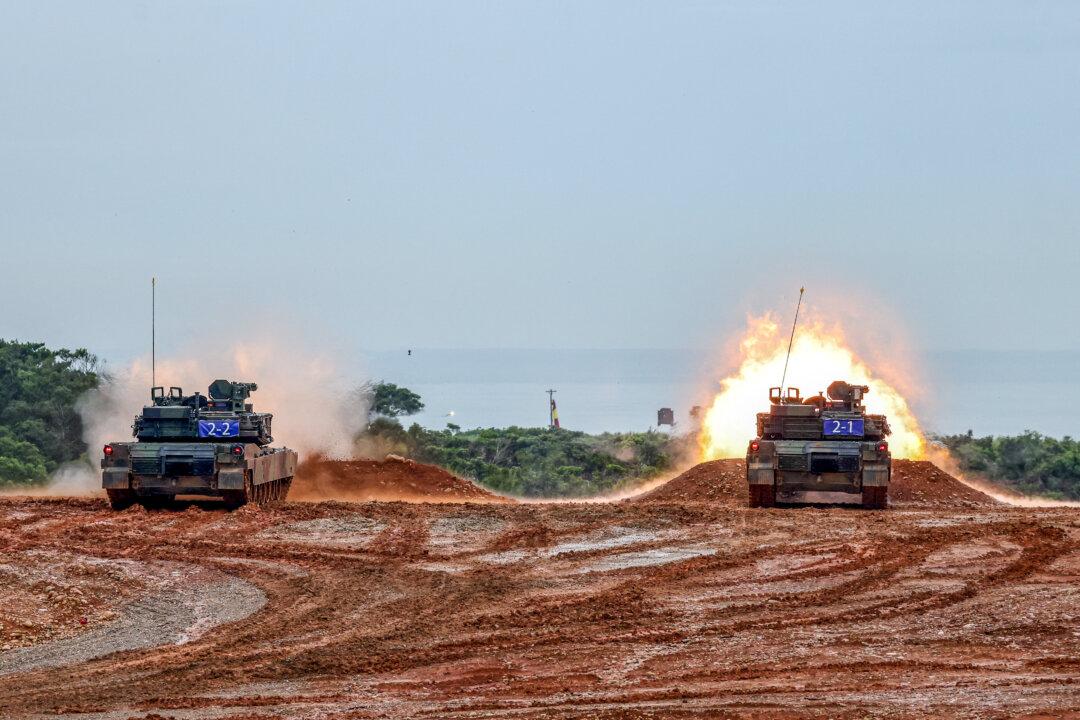Commentary
The regime in China is crafty. It’s always looking for opportunities to make the tiniest advances, which it then defends as if they were matters of life or death. It’s called incrementalism or salami slicing. Beijing steals a thin slice of salami at a time, and if you don’t stop the theft, soon your entire salami is gone.
For example, Beijing has recently been attempting to get the Trump administration to publicly oppose Taiwan’s independence, sources told The Wall Street Journal. Public opposition would be a backslide from the carefully crafted language of opposing unilateral or forceful changes to the status quo, matched with strategic ambiguity over whether the United States would or would not defend Taiwan militarily. If that strategy sounds confusing, it is doing its job.
To simplify, the U.S. strategy is to make China think that the United States will defend Taiwan and make Taiwan think that it won’t. That maximizes deterrence from both sides, but this isn’t easy to achieve, since both Beijing and Taipei are intently listening to what Washington says to the other. They’re also watching what the Pentagon does in the region.
Thankfully, there is plenty of U.S. military muscle around, although not enough. The most important muscle for defending Taiwan is Taiwan’s military itself, which depends on U.S. weapons exports.
If Washington were to submit to the preferred language of the Chinese Communist Party (CCP), it could be used against future U.S. arms exports to Taiwan. That would hurt the U.S. economy, weaken the U.S. defense industrial base, degrade deterrence, and increase the likelihood of war between China and Taiwan.
The current balance across the Taiwan Strait is based above all on robust U.S. arms sales to Taiwan, which ideally deter the Chinese regime from ever attempting to conquer the country. Those sales are helped by strategic ambiguity, because Taipei can never be certain that the United States will risk a war with China to defend Taiwan.
After the CCP conquered Beijing in 1949, the nationalists who fled to Taiwan dreamed of retaking mainland China. Then, as the CCP’s economic and military power grew because of its international trade, Taiwan’s goal eventually appeared impossible. Taiwan then simply sought peace and independence, in that order.
Taiwan democratized in the late 1980s, which made it easier for the United States to support the island. It also made the possibility of Taiwan retaking the mainland a greater—if still seemingly impossible—prize. The prize is so great because, were mainland China to become democratic, it would solve many of the world’s problems, including by ending Beijing’s support of authoritarian regimes such as Russia, Iran, Venezuela, and North Korea.
But some analysts believe that a formal declaration of Taiwan’s independence would “provoke” the CCP into an invasion, thus causing a war. So, along with the CCP, they blame Taiwanese politicians who publicly moot the idea of independence. One way of doing so is to claim that Taiwan is already independent and that thus no formal declaration is required. This makes abundant sense, with many countries (although in decreasing numbers) recognizing Taiwan’s sovereignty. Claiming that Taiwan is already independent—and giving it a seat at the United Nations—would make sense in response to Beijing’s continued aggression; backsliding would reward Beijing, which would encourage it to do more of the same.
Independence from the CCP is everybody’s right and arguably their duty. The CCP is conducting at least one genocide, which is the worst of all evils. So, since it is a duty to resist evil, it is a duty not only to declare independence from the CCP, but also to resist it with our actions. To blame Taiwan’s politicians for wanting or even declaring independence is, therefore, to blame the victim; it is arguably to be complicit in the crime.
President Donald Trump will not do this. He is defending the U.S. economy and national security, which benefit from treating Taiwan as a fully independent country and selling it the weapons that Taipei needs for self-defense. Without these weapons, the Chinese regime could more easily attack Taiwan and win, which might make Washington feel obligated to defend Taiwan militarily. That could lead to a direct war between two nuclear-armed superpowers, which we should never want.
But at the same time, we cannot allow the CCP to become even more powerful by taking Taiwan, including its semiconductor factories. So unless we continue to hold the line against the CCP’s attempts to manipulate our language, we could be facing more trouble down the road.





